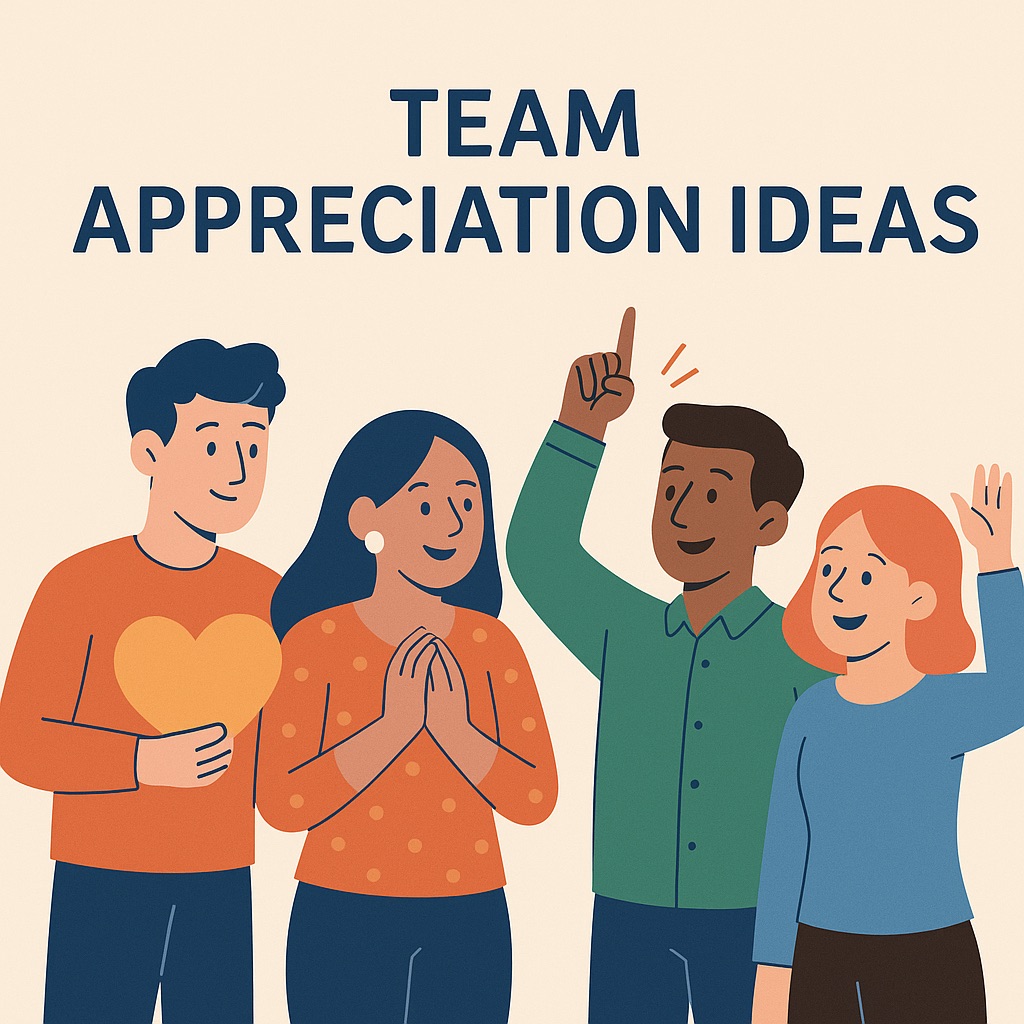Because no one wants a compliment that sounds like an HR template.
🎭 The Fake Smile Problem
You’ve asked your team to start “recognizing each other more.”
You introduced shout-outs. Maybe even a Slack channel.
And yet…
- The responses are dry.
- The tone feels forced.
- Some folks roll their eyes.
- Others just… don’t engage.
You start to wonder:
“Is my team emotionally broken? Why is appreciation so awkward here?”
Relax. It’s not you.
And it’s (probably) not them either.
It’s the style of appreciation — not the need for it — that’s clashing.

Team Appreciation Ideas & Why Appreciation Can Feel Fake sometimes.
Let’s decode it. Appreciation lands as fake when:
- It’s vague: “You’re doing great work” = what does that even mean?
- It’s late: “Good job on that project… three weeks ago.”
- It’s top-down only: Feels like a manager’s performance trick.
- It’s performative: Said in public, but not felt in private.
- It’s insincere: You praise someone you just criticized an hour ago.
Appreciation is like chai — best served hot, fresh, and personal.
What Real Leaders Do Instead
1. Get Specific, Not Scripted
Instead of:
“Thanks for the great work.”
Try:
“The way you handled the last-minute client edits — especially the part about rewriting the deck calmly — that really helped us.”
Why it works:
People don’t want praise.
They want to be noticed.
2. Appreciate Effort, Not Just Outcomes
Sometimes things don’t go as planned.
Deadlines are missed. Results fall short.
But if someone stayed back late, took initiative, or kept morale up — say it.
“We didn’t hit the mark, but I saw how much thought you put in. That matters.”
Why it works:
This builds psychological safety. People stop fearing failure and start owning effort.
3. Start Private, Then Go Public
Public shout-outs are great. But when they come before any personal feedback, they can feel staged.
First, drop a message like:
“Hey, just wanted to say I noticed how you helped Priya last week with onboarding — thoughtful and patient.”
Then, if it fits, share it publicly.
Why it works:
Public applause feels more genuine when it follows a quiet acknowledgement.
4. Invite Peer Appreciation — Gently
Saying, “Everyone share appreciation now!” doesn’t work. It creates pressure.
Instead, try:
“Was there a small moment this week where someone surprised you, helped you, or made your day easier?”
This lowers the bar, opens the heart.
5. Be Real. Be You.
If you’re not a gushing, emotional speaker — don’t fake it.
Even a low-key line like:
“Hey — I saw that. Solid work. Thank you.”
can mean a lot, if it comes from a place of truth.
Why it works:
Authenticity always lands — no matter the volume.
Final Thought
You don’t need grand speeches or motivational posters.
What your team needs is honest, timely, thoughtful appreciation — one real moment at a time.
When that happens, appreciation stops feeling like a performance.
It starts feeling like belonging.




